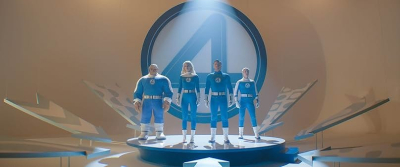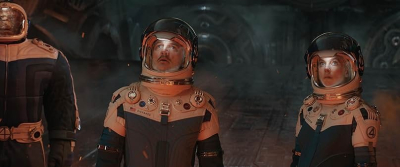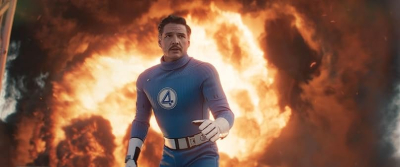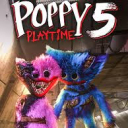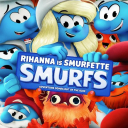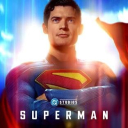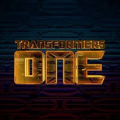The Fantastic Four: First Steps
Step into the cinematic universe of The Fantastic Four: First Steps and you find yourself not merely revisiting superhero origins, but tumbling headlong into a dazzlingly imagined parallel 1960s—a world where technology, optimism, and science fiction dreams shape society’s very fabric. Billed as the cornerstone of Marvel’s Phase Six and helmed by Matt Shakman, this film casts off tired patterns, exuding a kind of narrative and visual freedom rare for legacy franchises. It is immediately apparent: this is no generic reboot, but a leap into vibrant storytelling and exhilarating world-building, poised to redefine Marvel’s first family for a whole new era.
A Universe Spun from Dreams—And Caution
From its opening, First Steps makes bold use of its 1960s alternate reality, bathing everything in bold neons, soft pastels and brushed steel. In this timeline, the Fantastic Four are not outcasts—they’re celebrated figures, with the Future Foundation a beacon of progress and peace. Baxter Building soars as both laboratory and media landmark; the city grinds and glows in harmony with the team’s heroic celebrity.
Rather than grounding story beats in superhero school or lab bloopers, the film pins its stakes to collective fears and hope. This Marvel World’s shared faith in invention gives both the characters and their decisions unusual gravity: Reed Richards (Pedro Pascal) wields fame and pressure alongside science; Sue Storm (Vanessa Kirby), poised on the edge of motherhood and leadership, stands as much an ambassador for her era’s ideals as its innovations. Ben Grimm (Ebon Moss-Bachrach), aching for normalcy beneath his rocky bulk, and Johnny Storm (Joseph Quinn), feeding on public adulation yet hungering for sincerity, both provide vital counterpoints to the script’s optimism. Every choice ripples outward—this is a globe where evolution and disaster are one wrong equation apart.
Galactic Threats, Intimate Dilemmas
Gone is the trope of the citywide brawler villain. Instead, Galactus (Ralph Ineson) looms—a cosmic entity as chilling as he is mesmerizing, rendered in towering, comic-faithful style and treated by the script as a force of nature. Ineson’s voice and movement evoke not just threat but alien majesty, giving Galactus purpose beyond mere antagonism. Julia Garner’s Silver Surfer (Shalla-Bal) enters the story with grace and sadness—a heroinic figure, tragic and poetic, who ties the narrative to sacrifice and cosmic morality.
Most strikingly, First Steps resists making this solely an external struggle. The birth of Reed and Sue’s child, Franklin, underscores a motif echoed in the film’s very title: the courage and cost of forging unknown futures. Scenes switch nimbly between cosmic awe and grounded anxiety, using sci-fi set pieces (the Negative Zone, an interstellar chase) as metaphor for personal and social risk.
Production Alchemy: Innovation Over Nostalgia
Forget rubber suits and mindless CGI. Shakman’s approach is tactile and inventive. The film’s production team leans into physical models—Excelsior’s hull, Baxter’s penthouse, and mid-century gadgetry all realized through intricate set work and clever light-play. Jess Hall’s cinematography favors long-held shots, inviting the audience to linger in environments brimming with real-world texture while the digital enhancements serve only to amplify wonder, not overpower believability.
Michael Giacchino’s score sets the emotional tone—not just another heroic march, but a lush, multifaceted companion that constantly, artfully shifts as alliances and threats ebb. H.E.R.B.I.E., the team’s much-loved robotic sidekick, becomes both playful heart and thematic echo: loyal, charming, and just as vulnerable to the weight of the world’s expectations as any human.
Screenwriting with Substance
Perhaps the film’s sharpest edge comes from its script. Writers Friedman, Pearson, Kaplan, and Springer forgo punchline-heavy dialogue in favor of conversations about responsibility, community, and possibility—enlivened by humor, but never hijacked by it. Reed’s and Sue’s debates about parenthood, Johnny’s search for identity, and Ben’s yearning for acceptance are woven into every confrontation with cosmic peril, ensuring each character arc resonates beyond the genre’s usual melodrama.
Closing Reflections
The Fantastic Four: First Steps doesn’t just reintroduce Marvel’s iconic team—it elevates them with narrative ingenuity, aesthetic bravado, and a soul-deep commitment to the concept of hope itself. This is a film for the dreamers, the thinkers, the fans who crave their spectacle bound to substance. If you stream, watch, or download it online, you’ll find a superhero epic unafraid to ask what comes after invention, and what risks remain as we take our own first steps into tomorrow.
How to watch The Fantastic Four: First Steps online
After its theatrical debut on July 25, 2025, The Fantastic Four: First Steps will arrive for streaming on Disney+ (subscription required, with download options), and for digital purchase or rental on Amazon Prime Video and Apple TV. Offline viewing and streaming will be available on these platforms, while Peacock and Hulu may pick up the title later. Free or unblocked access will not be immediate, but could appear on select platforms many months after release. US age rating is PG-13 for adventure, thematic complexity, and sci-fi action.
Pros
- World-building and retro design deliver a strikingly original MCU vision
- Core relationships—especially Reed & Sue—are handled with emotional complexity and maturity
- Galactus and Silver Surfer have rare gravitas, elevating the stakes beyond common superhero fights
- Practical sets and in-camera effects anchor cosmic spectacle in the tangible
- Score, sound design, and visuals blend for immersive storytelling
- Clever, philosophical script gives every character compelling dilemmas
- Brisk plot avoids both exposition overload and empty action
- Strong sense of family in both conflict and support, unique in superhero cinema
Cons
- The deliberate absence of MCU crossover moments may disappoint established franchise fans
- Supporting characters sometimes fade into the background as the core family arcs dominate
- Cautious pacing and dialogue-driven passages may feel slow for those craving near-constant action
- Complete lack of origin story could confuse those new to the Fantastic Four universe

